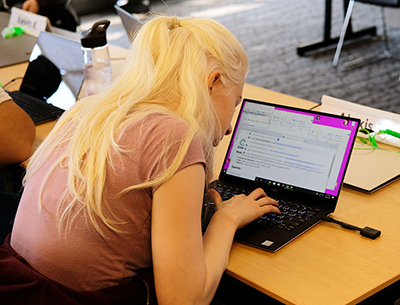
In 2018, DO-IT submitted a proposal to the National Science Foundation and received funding for a one-year grant focused on conducting exploratory research to inform the design of the next generation of digital learning environments for science, technology, engineering, and mathematics (STEM) content. Since the beginning of the year, the team successfully held a 2.5-day capacity building institute (CBI) with other cyberlearning colleagues from around the country, engaged in an online community of practice, and completed four significant documents that promote the design of cyberlearning opportunities that are accessible to students and instructors with disabilities:
- Proceedings from the AccessCyberlearning 2.0 Capacity Building Institute
- An 11-page white paper: Accessible Cyberlearning: A Community Report of the Current State and Recommendations for the Future
- A short brochure with direct recommendations for designing and implementing accessible online learning: Guidelines for Cyberlearning Researchers
- A comprehensive document that goes deeper into the research being done and different needs, the roles of various stakeholders, and more: Designing Accessible Cyberlearning: Current State and Pathway Forward